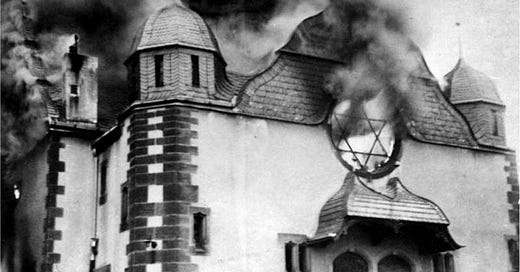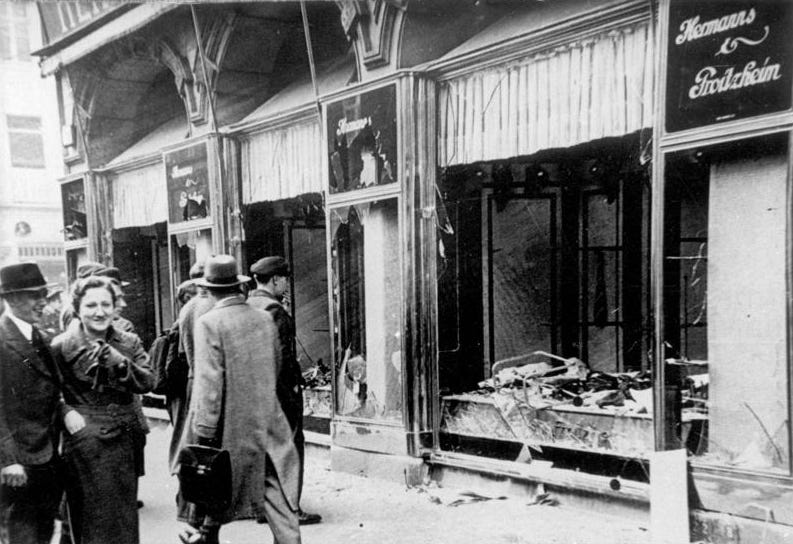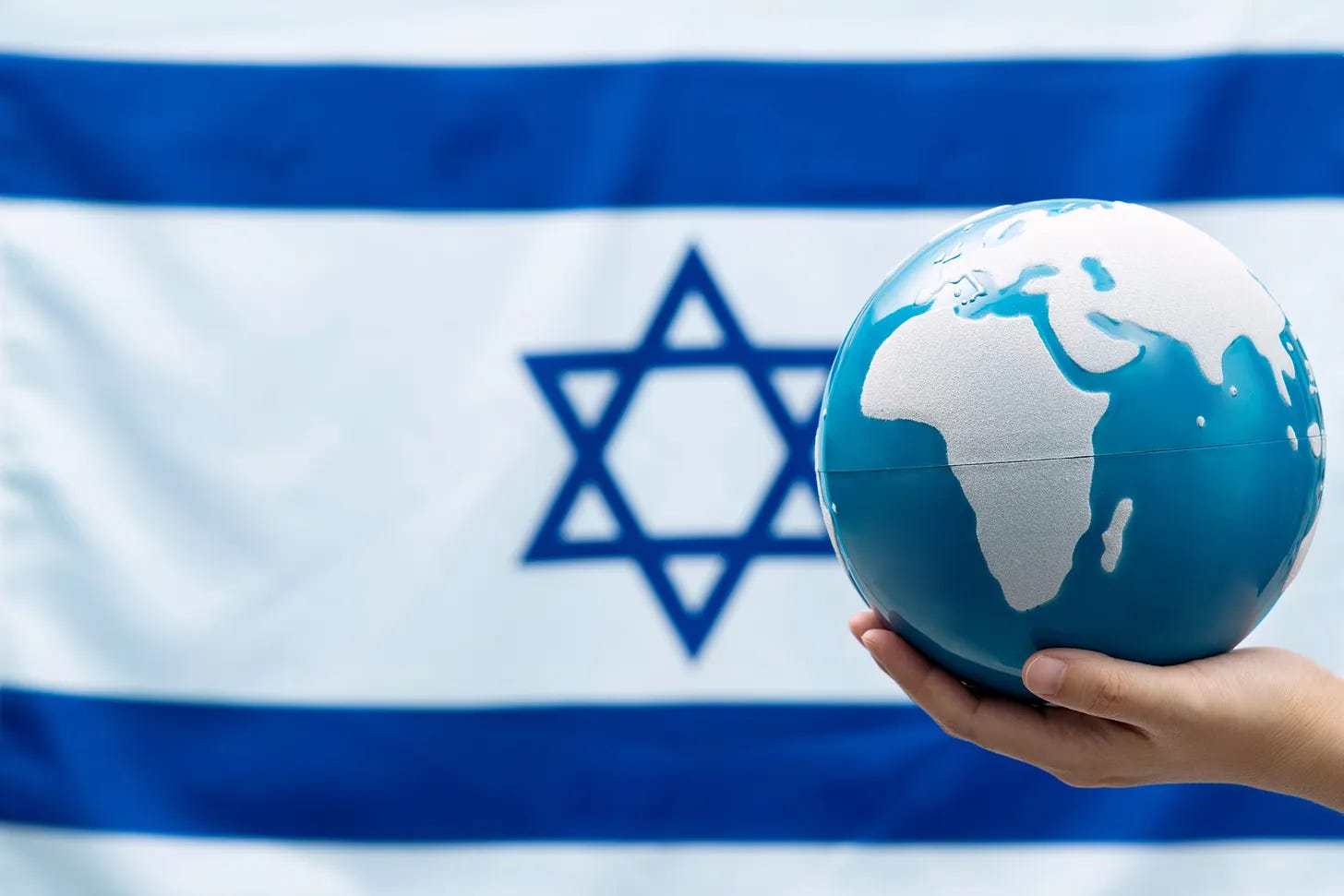Survivor of Kristallnacht Speaks
91-year-old Werner Salinger views the war versus Hamas through the lens of what he witnessed on Kristallnacht — 85 years ago today
By Michael Golden
Werner Salinger was six years old on Nov. 9, 1938, when the Nazis assaulted Jewish communities all across Germany. He still remembers the sights, sounds and smells:
“Our apartment was right in the middle of Berlin. We were on the second floor, and there were stores across the street that were vandalized and the storefronts were broken. So I remember the shredded glass on the street, and I certainly remember the smoke. My parents, although they were not religiously Jewish, they were members of that congregation. And that was burning, of course, as many synagogues were in the country on that day.”
Kristallnacht — “The Night of Broken Glass” — was a turning point in the lead-up to the Holocaust. In a wave of violent pogroms across Germany, the Nazis looted and destroyed 7,500 Jewish businesses and arrested 30,000 male Jews — most of whom were transported to concentration camps.
Werner’s parents were able to escape with him to London, where they waited 10 weeks for their visas to travel to America. They arrived in New York on February 2, 1939, the anniversary of Lincoln’s birthday. It’s a story Werner has been telling young people for many years. Now 91, he says he’s still at it:
“I think it's very important that the Holocaust is remembered as one of the major genocides of all time. That it is never forgotten.”
And yet.
Werner says he was “absolutely aghast” as he watched Hamas’s murderous assault and kidnapping of more than 1,500 Jews on Oct. 7. I asked him if he could have ever conceived of something like this happening — eight decades after the Holocaust.
“No. Of course not. I could not have imagined it. And I don't know how this could have been planned over a multi-year period without being discovered by Israeli security forces, by intelligence forces… I cannot wrap my mind around it. Not only that, but the increasing rate of anti-Semitism around the world, including in the United States. I don't understand why this hatred continues today.”
Once upon a time, Werner Salinger worked in military intelligence himself — for the United States. Fifteen years after escaping Berlin as a child, he returned to Germany as a 21-year-old member of the U.S. Air Force. He fell in love with the daughter of a German soldier, Martha, whom he’s been married to for 68 years.
As we talked about Israel’s incredibly daunting challenge of facing an old enemy that has proved anew it is hell-bent on wiping Jews off the face of map, Werner said he still has hopes for the future. He pointed to German Vice Chancellor Robert Habeck’s vocal support for Israel in speech on Nov. 2, which included the following:
“Hamas does not want reconciliation with Israel, but the extermination of Israel. And this is why it is pivotal to make it clear that Israel’s right to exist must not be relativized. Israel’s security is our obligation. Germany knows this.”
Still, Werner knows that nice words from world leaders can’t do for Israel what it has always been required to do for itself. There’s no easy choice. And while he believes the IDF should do everything in its power to “root out Hamas” — he’s terribly worried about what comes with it:
“I don't know how you avoid the civilian casualties, and the more civilian casualties there are, the more hatred of Israel will be generated. This is why it would be good for Israel to take a look at what happened in Mumbai, 20 or 30 years ago.”
Werner was referring to a New York Times column by Thomas Friedman that praised India’s former Prime Minister Manmohan Singh for not launching a war on Pakistan in 2008 — after Pakistani Jihadists had invaded Mumbai and killed 160 people.
I told Werner that I could see the wisdom in Friedman’s argument for restraint, but that he has also used the term “insoluble” more than once with regard to the Middle East. Werner remained hopeful:
“Well, my response to that is that nothing in the world is insoluble. Every war has an end. Even the Thirty Years’ War had an end. And this argument between Palestinians and Israelis, at some point it will have an end too. And I think it will happen through economics. And I think the Abraham Accords will lead the way. I hope they will.”
**Michael first met Werner Salinger in Arizona in early 2022 while producing a short film on “The Life Masks and Holocaust Art of Robert Sutz.” Werner has since moved to the East Coast, where he remains active in Holocaust education.
Free subscriptions to JEWDICIOUS are available until the end of 2023!
From decoding politics to the cutting edge of wellness to the human angle on sports to parenting and personal relationships — plus our unsparing take on what’s happening in the Jewish world — the canvas at JEWDICIOUS is limitless. Our 18 scribes share one overarching goal: To present you with new ideas and slices of life that will hit your head or touch your heart!







